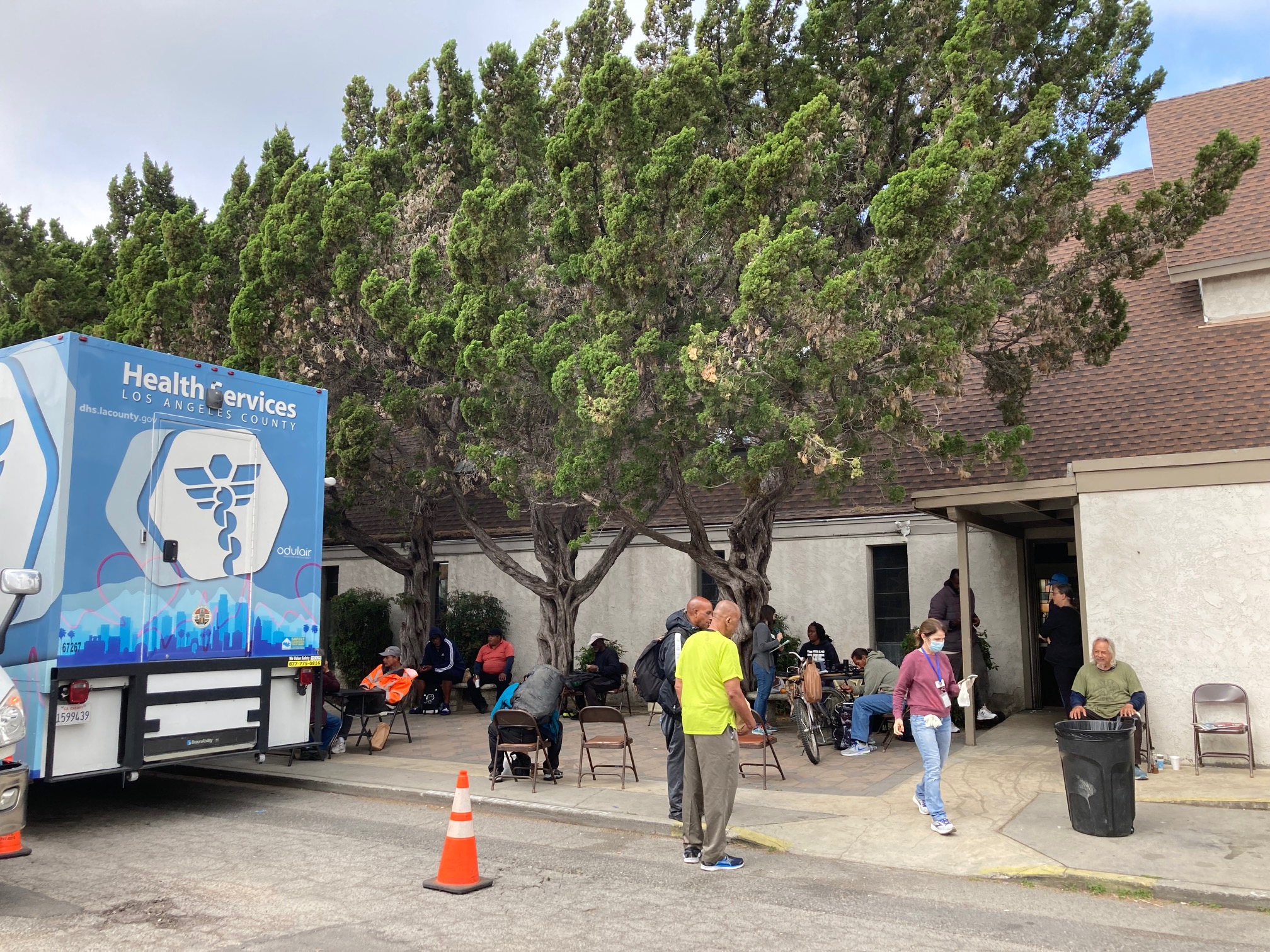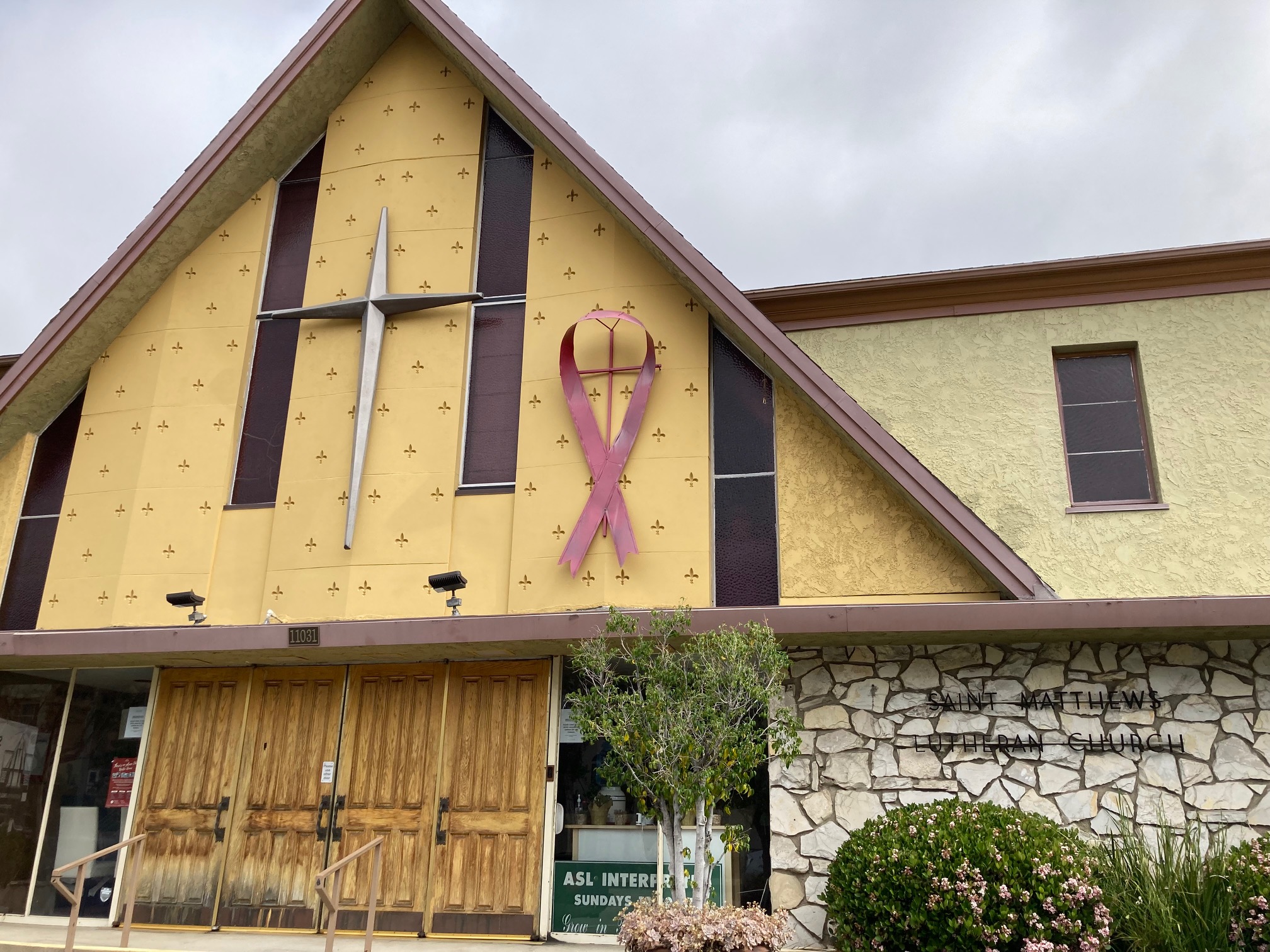
Growing up in Los Angeles, I remember dreading the scorching hot days of summer when even the slightest movement could leave you feeling completely drained. But what I didn’t realize until later is that heat waves are not just an uncomfortable nuisance, they can actually be deadly. In fact, Southern California is the only region in the US with recorded heat-related deaths in the winter. And sadly, this issue will only get worse in the face of climate change, as California is predicted to experience more frequent, more intense, and longer-lasting heat waves in the coming years. As a Master of Public Health student here at UCLA, I have come to see climate change and heat waves as some of the most pressing health challenges facing our communities in Los Angeles and beyond. That’s why I am committed to using my education and platform to help prepare our communities for a changing climate.
Though heat waves, in a sense, affect all Los Angelenos, their impacts are not felt equally. Older adults, communities of color, and people with chronic health conditions face some of the greatest burdens around climate change and extreme weather. Seeing this issue and in applying for the Health Equity Challenge, I began to think of my grandparents, and even my aging parents, who grew up and enjoyed a Californian climate different than today. Preparing our families and achieving goals around health equity mean ensuring that we take into account the unique needs and challenges faced by vulnerable groups. For many, that means taking the first step through learning about what heat waves are, how they can impact health, and how we can keep ourselves and loved ones safe.
In thinking through some ways to reach older adults and people with chronic conditions across Los Angeles and its many diverse communities, I tried to think about the health experiences of my grandparents. Online and digital tools, though effective for some, were definitely not on their radar. Even trusted health officials like doctors and nurses were only seen on a rare occasion, and climate change isn’t exactly a common topic in the exam room.
Then it hit me. Whether it was my parents, other family members, friends, or paid professionals, at some point my grandparents all relied on caregivers to help manage their health, aging, and chronic conditions. Caregivers are the backbone of in-home health, and many of us will act as a caregiver for a loved one during our lifetime. Rain or shine, heat or cold, caregivers are on the front lines of managing the health of older adults and those with chronic conditions. They play a crucial role in ensuring that those they care for stay safe and healthy. However, because so many family members and friends end up stepping in as dedicated informal caregivers, many may not be equipped with the knowledge and tools they need to protect health in extreme heat.
“In thinking through some ways to reach older adults and people with chronic conditions across Los Angeles and its many diverse communities, I tried to think about the health experiences of my grandparents. Online and digital tools, though effective for some, were definitely not on their radar. Even trusted health officials like doctors and nurses were only seen on a rare occasion, and climate change isn’t exactly a common topic in the exam room.”
Having seen firsthand the immense value caregivers provide in the health of my own family, I recognize the invaluable role caregivers play in our larger health systems, yet they are often overlooked and undervalued. Training around extreme heat — whether it’s monitoring symptoms of heat exhaustion or learning ways to stay cool — will be critical as we adapt to a changing climate. Training existing caregivers — whether formal and paid or informal and a loved one — means they can act more effectively during heat waves. This will lower stress, improve health, and avoid costly emergency care. Through my Health Equity Challenge proposal, I want to invest in caregivers, provide heat-related education, and ensure they are better prepared to manage the unique challenges posed by a changing climate.
As I reflect on my personal experiences, the needs of my family members, the health of my community, and the field of public health, I am more convinced than ever that investing in caregivers is critical to achieving health equity in our communities in the face of climate change. As we feel the effects of climate change across Los Angeles, I believe we need to immediately invest in the future of in-home health, caregivers, and the wellbeing of older adults and people with chronic conditions.
That’s why I feel so passionately about my Health Equity Challenge proposal. It’s not just about preventing unnecessary deaths and hospitalizations, but also protecting those most vulnerable, like grandparents, and honoring the vital role that caregivers play in our families and communities. I hope that by raising awareness and investing in their training, we can support caregivers and ensure that they have the tools they need to keep themselves and loved ones safe. It’s a small step towards a healthier and more equitable future, but I believe it’s an important one.

By Nikolas Wianecki
2023 Health Equity Challenge Finalist
Nikolas Wianecki is a Master of Public Health (MPH) in Community Health Sciences student at the UCLA Fielding School of Public Health. He was driven to pursue scholarship in public health through witnessing the devastating impacts that traumatic life events have on health and well-being, especially for marginalized communities. Most recently, Wianecki has worked in projects around disaster workforce development, COVID-19 vaccine equity for NHPI and SEA communities, and gender-based violence in Kenya.
continue reading
Related Posts
Hi, I’m Amani. I’m a third-year medical student at UCLA, a former high school science teacher, a published short story writer, and (hopefully 😊) a future neurosurgeon.
When I first saw Brea at the LA animal shelter, her white-gray checkered fur was overgrown and severely matted.
I find myself standing on a winding path, fraught with the fears and uncertainties that have long shadowed the dreams of my community.






